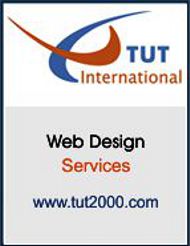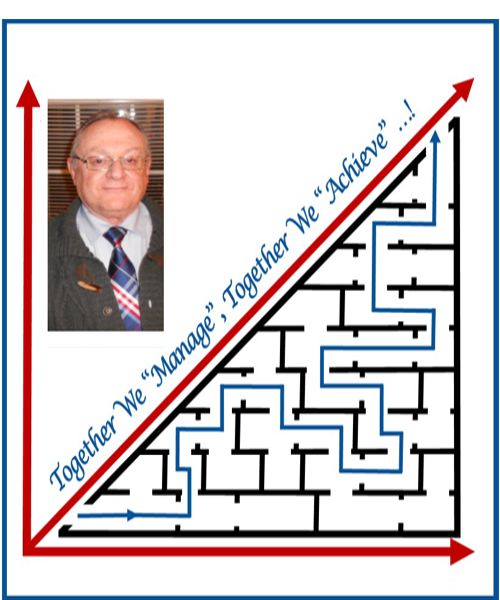Viewpoint
» On "Teaching"
» On "Learning"
» On "Knowledge"
» On "Goals"
» On "Time"
» On “Management”
» On “Reading”
» On "Committees"
» On "A Place to Visit"
» On "Human Resources"
» On "Progress & Development"
» On "History"
» On "Public Speaking"
» On "Organizing"
» On "Motivation"
» On "Teams"
» On "Communication"
» On "Management Coaching"
» On "Traveling"


On “Time”
By Adel J. Helou
Of all the resources available to people, “Time” carries a very prominent position and rank. This is due to its special nature and - if it can be qualified as such - its behavior. As you know, time goes in one direction, at a constant speed, and it does not repeat itself. This means that Time cannot be slowed down or speeded up, it cannot have its direction changed, it cannot be stored and there cannot be a re-play or a re-use of the same span of time. Throughout human history no one was able to affect the passing of Time or alter its nature and behavior. The only effort that was of any value that people could do with Time was to develop ways to measure it, and people were successful in that effort. Therefore, there are clocks and watches of different types which are in use today to measure time.
The dilemma in which the gurus of Management find themselves, is handling all the ideas and discussions about “Time Management” and the ability of individuals to manage their time. It is a well-known fact that no one can manage time, although the term has been well established in the field of management. The point here is not to change the term “Time Management”. And it will not be changed. What is needed is for individuals to be more accurate and realistic in their understanding of the term and the way in which it is used.
A more appropriate way to describe "Time Management" may be to present it as "Management of Activities within the Available Time". Once set in that perspective the concept becomes practical, tangible, objective and, hence, doable! The issue becomes that of managing activities - intellectual or physical – in such a way where the available time will then be put to better use.
Looking at the last statement: "… where the available time will then be put to better use"; entails several aspects, in both Life and Business Activities.
In Life Activities that may mean – among others:
» Reduce or eliminate procrastination
» Respect appointments
In Business Activities that may mean – among others:
» Reduce down-time in operations/production
» Reduce rework-time in office-work and factory-work
» Reduce maintenance time where possible
» Respecting schedules and appointments

To achieve better use of time, activities and tasks should be identified and listed. Time dedicated to analyzing, evaluating, and prioritizing activities is well-spent. Executing the activities would then take place as prioritized and scheduled.
"Management of Activities within the Available Time" and "… where the available time will then be put to better use" are two statements - mentioned earlier - which indicate that time should not be wasted – or, rather, non-productive time should be reduced and minimized.
To implement the above recommendation and taking one day (24 hours) as the allowed time of activity, individuals will consider setting a plan (plan-of-action) to complete the tasks that were mentioned in their list (to-do-list) taking into consideration the priorities set for the tasks. The plan will include a schedule that would indicate the expected time to complete each task or operation. By planning the activities of a day in this fashion it will be possible to identify Worktime and Idle time. By re-evaluating the plan there may be a possibility to find opportunities to reduce and minimize Idle-Time and maybe add task(s) to the day’s work.
The situation described above could be applied to a person’s daily life activities. In the business world, the allowed time may vary; one day, one week, a month, a quarter, six months, or a year ... etc. Also, the size and type of tasks or activities will vary. The nature of the work activities would be more complex. That would require extra attention while planning and scheduling these activities to fit within the allowed time.
From the above, we notice that what is managed are Activities and Tasks … not Time …!
Adel J Helou: is a Business and Life Management Coach. He has more than 15 years of experience in production and operations management. The Author has international professional experience in the Middle East markets. He holds a B.Sc. degree in Chemistry and Physics and an M.Sc. in Chemical Engineering. Mr. Helou has pages on Facebook, LinkedIn, Twitter and Instagram:
facebook.com/AdelJosephHelouManagementCoach/
linkedin.com/in/adeljosephheloumanagementcoach/
Instagram.com/adel.helou
twitter.com/helou_adel
Read about his Management Coaching and the articles he writes, by visiting the electronic magazine: optimanage.com.
The E-Zine has a fb page: facebook.com/optimanagedotcom/.
He can be contacted by e-mail: a.j.helou@optimanage.com (e-mail)
linkedin.com/in/adeljosephheloumanagementcoach/
Instagram.com/adel.helou
twitter.com/helou_adel
Read about his Management Coaching and the articles he writes, by visiting the electronic magazine: optimanage.com.
The E-Zine has a fb page: facebook.com/optimanagedotcom/.
He can be contacted by e-mail: a.j.helou@optimanage.com (e-mail)




